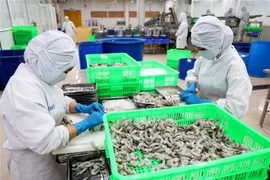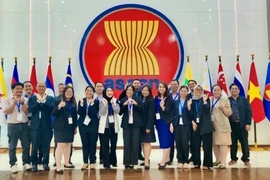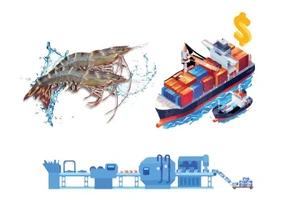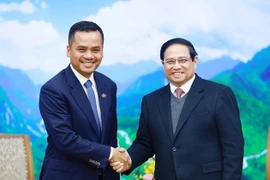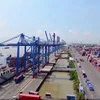Hanoi (VNA) – Major importers of Vietnamese agricultural products have been imposing stricter requirements, making Vietnamese businesses take measures to adapt.
According to the Vietnam Trade Office in Sweden, the European Union (EU) is currently implementing stricter regulations regarding food safety and sustainability for fresh agricultural products.
Specifically, the EU requires imported agricultural products to meet maximum residue levels (MRLs) for pesticides. Certain chemicals that are not permitted in the EU will be completely banned from imported products.
Additionally, fresh agricultural products imported into the EU must have a phytosanitary certificate which helps prove that the products do not carry harmful organisms. Furthermore, heat treatment for mangoes or similar measures is also encouraged.
The EU has also increased the inspection rates for products at high risk for chemical residues from certain countries, including agricultural products from Vietnam.
With strict regulations on food safety and sustainability, the EU aims to minimise environmental impacts and ensure product quality.
Last year, Vietnam's export of fruits and vegetables to the EU reached 7.15 billion USD, helping the country maintain its position as the 24th largest supplier of vegetables, fruits, and processed products to the market.
Apart from the EU, China - another top importer for Vietnamese agricultural products - is also tightening standards for imports.
Nguyen Dinh Tung, General Director of Vina T&T, said that China has set up emergency technical barriers, forcing businesses to comply strictly if they wish to continue exporting.
“To export agricultural products to this populous market, businesses must adhere to the quality standards set by China. The key is to ensure effective quarantine from the stage of procurement and packaging, and to stay updated on prohibited substances to avoid their use,” Tung emphasised.
Moreover, processing facilities need to establish a food safety management system to ensure that products exported to China meet their requirements.
According to the Ministry of Industry and Trade, in 2025, there will still be significant opportunities for Vietnam’s exports to the EU. However, Vietnamese agricultural product and food processing and production businesses must continue with innovation to meet environmental and social criteria, build sustainable supply chains, and enhance traceability capabilities to maintain their positions in the supply chain to this market.
In the context of the EU, in general, and Northern European countries, in particular, tightening import regulations for agricultural products, head of the Vietnam Trade Office in Sweden and Northern European market Nguyen Thi Hoang Thuy said that businesses need to strictly follow regulations to ensure product quality, including reducing pesticide residues, obtaining phytosanitary certificates, and investing in sustainable production.
They should demonstrate environmental protection efforts through certifications like GlobalGAP, Rainforest Alliance, or Fairtrade, Thuy said.
Deputy Director of the Vietnam National Sanitary and Phytosanitary Information and Enquiry Point (Vietnam SPS Office) Nguyen Xuan Nam said that maintaining quality and timely updating of market information to adjust production and processing are crucial for long-term export success. Therefore, investing in sustainable production to improve product quality and meet higher standards is the right choice for businesses./.
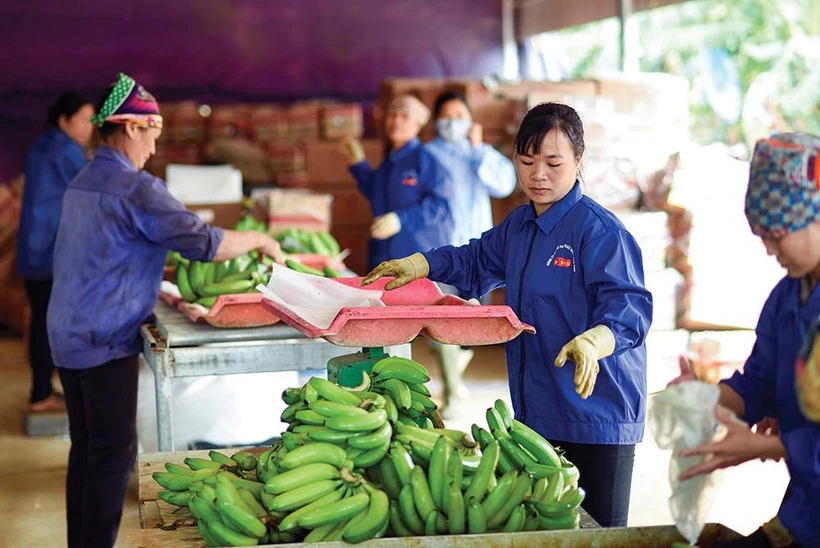
See more
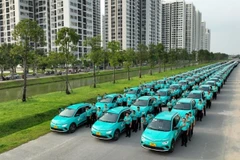
Local car market sees a significant growth of electric and hybrid vehicles
The electric and hybrid vehicle market in Vietnam is projected to experience significant growth, with forecasts indicating an increase of 25-30% in 2025, according to industry experts.

M&A in healthcare and education sectors expected to grow rapidly: report
The healthcare and education M&A landscape in Vietnam is expected to be vibrant this year, driven by strong foreign investment promotion policies and the rising middle class.
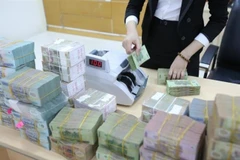
Banks set for aggressive bond issuance in 2025 to fuel growth
VNDirect estimated that the total value of privately placed corporate bonds maturing in 2025 will reach about 203 trillion VND (8 billion USD), reflecting an 8.5% increase from the previous year.
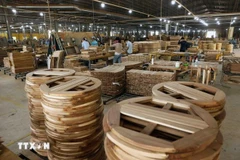
16th Vietnam International Furniture & Home Accessories Fair to be held next month
The 16th Vietnam International Furniture & Home Accessories Fair is expected to bring together 650 enterprises with over 2,500 booths, covering a total area of more than 40,000sq.m.

Lao Cai seeks stronger cooperation with Israeli partners
Secretary of the Lao Cai provincial Party Committee and Chairman of the People’s Committee Trinh Xuan Truong discussed potential collaboration with Israeli Ambassador to Vietnam Yaron Mayer during a meeting in Lao Cai city on February 19.
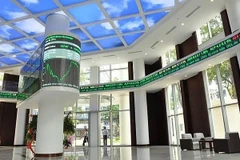
Over 1,200 foreign investors adopt innovative trading mechanism
The non pre-funding solution has quickly gained traction, now accounting for over 11 % of the total trading value among foreign investors in the market.
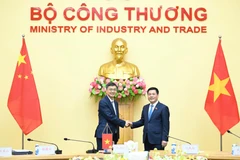
Trade sector signs two cooperation agreements with China’s Guangxi
The minister expressed his delight at the progress in bilateral economic ties, noting that Vietnam-Guangxi trade reached 41.6 billion USD in 2024, a 15.4% increase year on year. Vietnam has been Guangxi’s largest trading partner for 26 consecutive years, he said.

Geely Coolray to debut in Vietnam, kicking off with 168 million USD joint venture
Set to enter the Vietnamese market, the Geely Coolray has already surpassed 1 million units sold across 50 countries. It holds the top sales position in Algeria, ranks among the top three in Kuwait and Panama, and has recorded an 80.1% growth in the UAE. These achievements highlight its strong potential in Vietnam.

Over 300 firms to participate in Autotech & Accessories Show 2025
Autotech & Accessories Show 2025 will serve as a crucial platform for domestic and international firms to connect, expand trade cooperation, and access science and technology advancements.

Vietnam’s largest exhibition on electrical equipment, renewable energy slated for July
The 18th International Exhibition on Electrical Technology & Equipment (Vietnam ETE) and Products of Energy Saving & Green Power (Greenergy Expo) 2025 will take place in Ho Chi Minh City from July 16-18, showcasing the latest advancements in electrical technology, energy-saving products, and green power solutions.
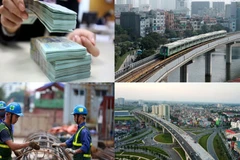
PM urges acceleration of public capital allocation, disbursement
The dispatch highlighted that the detailed allocation of the capital accounted for only 96.07% of the Government leader’s assigned target as of January 23, with some 84.84 trillion VND (3.32 billion USD) remaining unallocated across 26 central agencies and 48 localities.
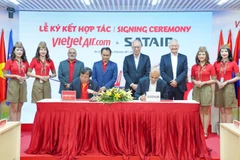
Vietjet, Satair sign multi-year agreement for integrated material services solution
Under their exclusive agreement, Satair will provide consignment stock and pooling support for expendables specific to Vietjet’s fleet. The tailored service will allow Vietjet to ensure material availability with a defined performance level, providing cost savings to boost cash flow and reduce capital expenditure.
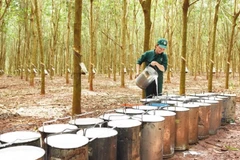
Vietnam’s rubber export expected to hit 11 billion USD in 2025
Vietnam’s rubber export is forecast to hit 11 billion USD in 2025, marking a yearly growth rate of 10% .
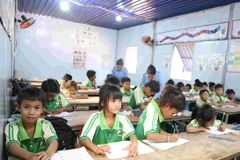
Cambodian journalists learn about Vietnamese company’s hi-tech agricultural complex
By 2028, THACO AGRI's projects in Cambodia will generate combined export revenue of 800 million USD per year and contribute 35 million USD annually in taxes to the state once they are fully operational.

Chinese consumers spend 70 million USD on Vietnamese lobster in January
According to the Vietnam Association of Seafood Exporters and Producers (VASEP), Vietnam's total aquatic exports in the month reached 774 million USD, up 3% year-on-year. This increase was primarily driven by strong Chinese demand for premium fresh seafood products, including lobster, crab, clams, and snails, as consumers prepared for Lunar New Year celebrations.
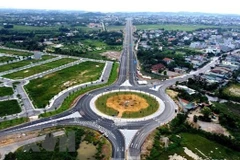
Quang Ninh sets ambitious 14% growth target in 2025
The northern province of Quang Ninh has revised its 2025 growth target to an unprecedented 14%, surpassing the government-assigned goal by 2% and exceeding previous provincial forecasts.
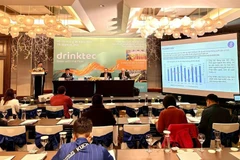
Vietnamese businesses to join world's leading beverage trade fair in Germany
Through Drinktec, the Vietnamese beverage industry can update digital techniques and technologies as well as green and circular technology transformations, while strengthening connections with partners and expanding the markets.

Securities companies' growth potential driven by bonds and margin lending
Following a robust performance in 2024, the landscape appears ripe for further expansion despite the challenges posed by a competitive environment.
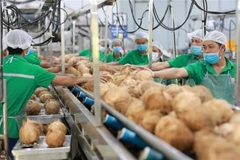
Coconut exports reach 14-year high
In 2024, fresh coconut and coconut product exports surpassed 1 billion USD, marking the highest figure in the past 14 years.
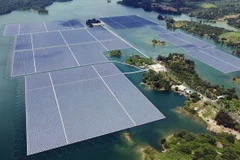
Vietnam advised to facilitate private investment in energy sector
Vietnam is aiming for double-digit economic growth, making energy expansion essential. To achieve this, the country should create a transparent and investor-friendly environment to attract the private sector.
